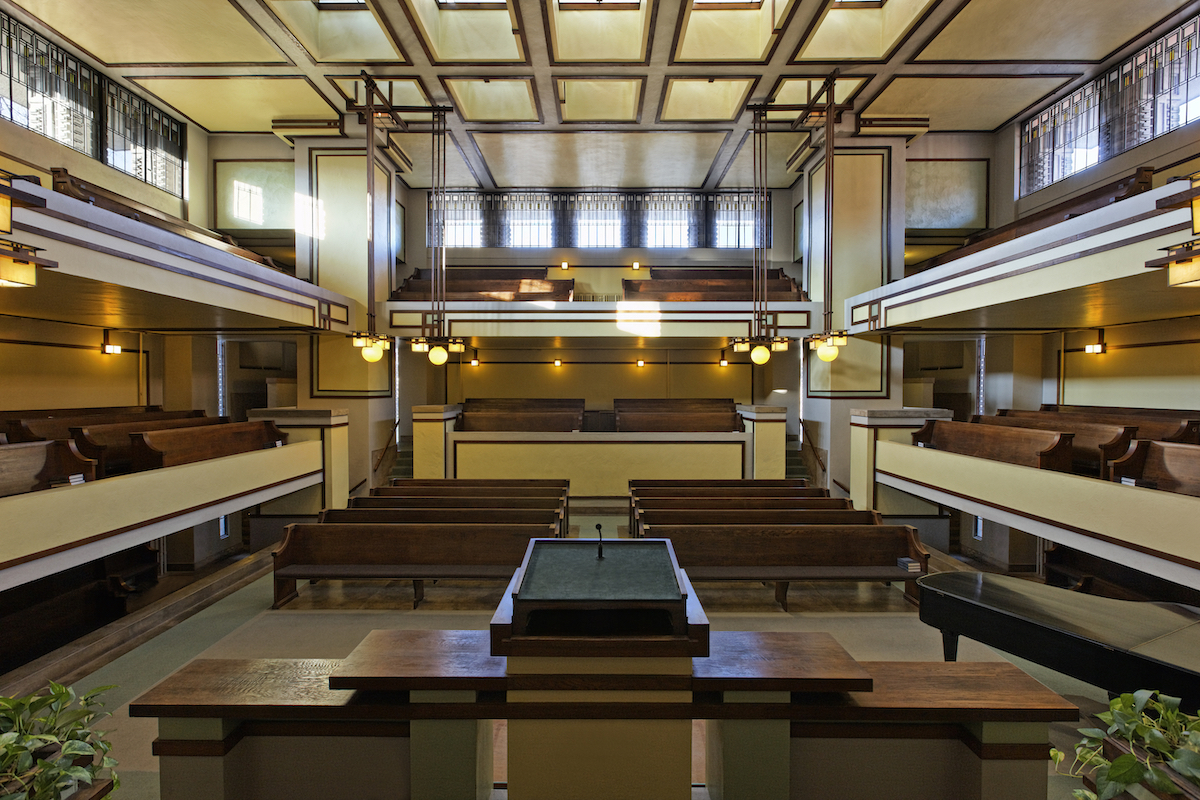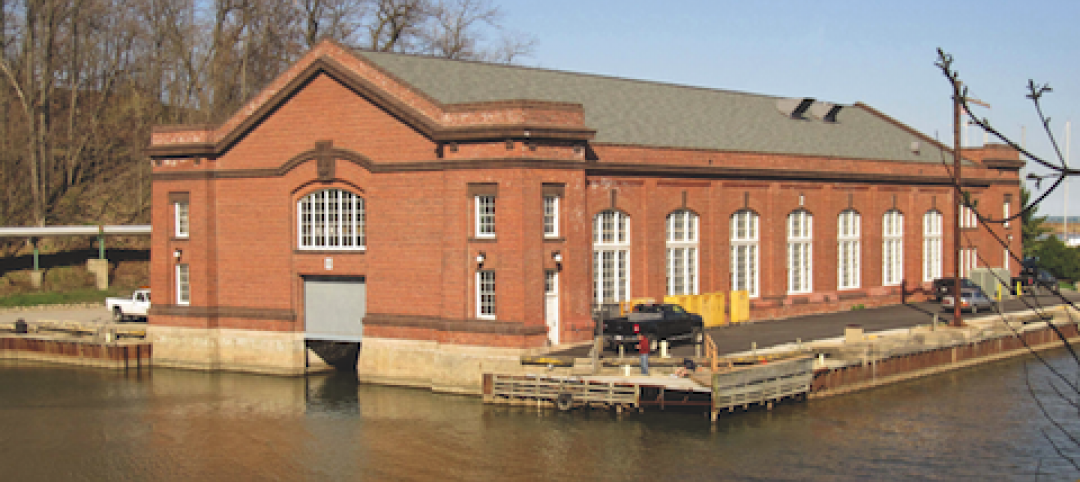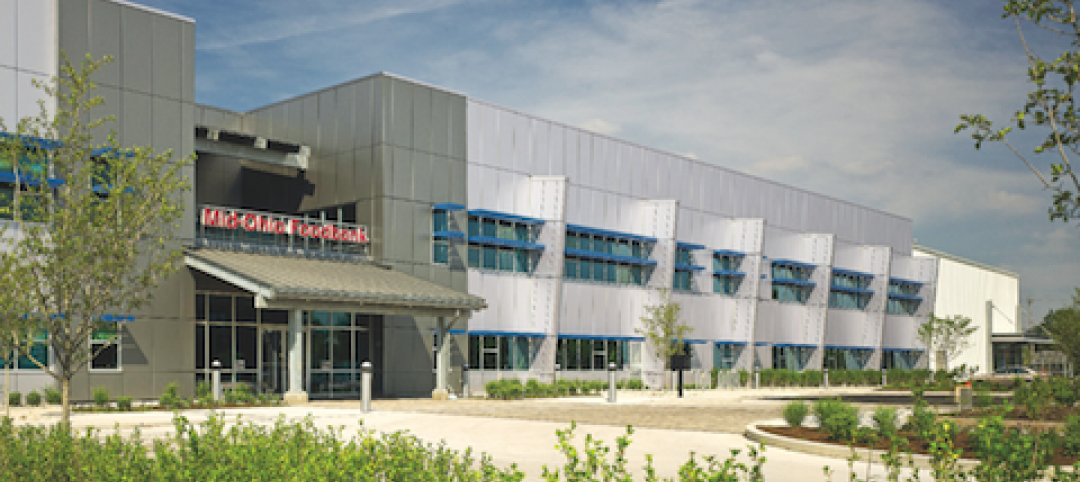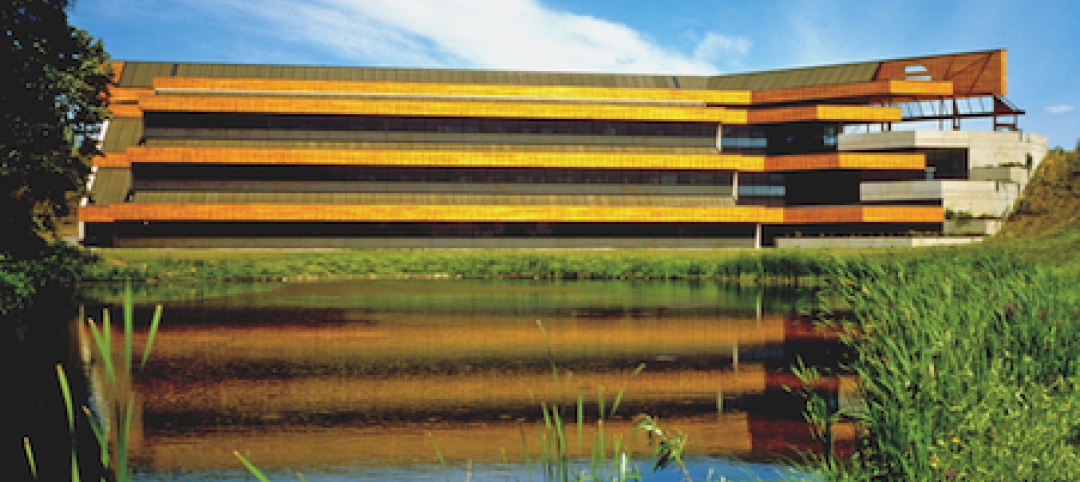During the 43rd session of the World Heritage Committee, currently taking place in Baku, Republic of Azerbaijan (June 30 - July 10, 2019), the World Heritage Committee named eight projects by Frank Lloyd Wright to the UNESCO World Heritage List.
The designation, officially named “The 20th century Architecture of Frank Lloyd Wright,” includes signature works designed by the architect during the first half of the 20th century. They are:
• Aline Barnsdall Hollyhock House (Los Angeles)
• Fallingwater (Mill Run, Pa.)
• Frederick C. Robie House (Chicago)
• Herbert and Katherine Jacobs House (Madison, Wis.)
• Solomon R. Guggenheim Museum (New York)
• Taliesin (Spring Green, Wis.)
• Taliesin West (Scottsdale, Ariz.)
• Unity Temple (Oak Park, Ill.)
On making the selection, the World Heritage Committee stated: “These buildings reflect the ‘organic architecture’ developed by Wright, which includes an open plan, a blurring of the boundaries between exterior and interior, and the unprecedented use of materials such as steel and concrete. Each of these buildings offers innovative solutions to the needs for housing, worship, work or leisure. Wright's work from this period had a strong impact on the development of modern architecture in Europe.”
In Chicago, the UNESCO designation coincides with the Frank Lloyd Wright Trust’s announcement of a new Frank Lloyd Wright Visitor and Education Center. The trust owns and maintains Wright’s Home and Studio in Oak Park, Ill., and operates public tours and programs at five Chicago area historic sites, including Unity Temple (1905-08) and Robie House (1908-10).
“This UNESCO designation firmly establishes Wright’s place on the international stage of modern architecture,” said Celeste Adams, President & CEO of the Frank Lloyd Wright Trust.
Wright joins pioneers of modern architecture already inscribed on the prestigious list, including Gerrit Rietveld, Walter Gropius, Mies van der Rohe, Le Corbusier, Oscar Niemeyer and Lucio Costa. There are more than 1,000 World Heritage sites around the world, and the group of Wright sites is now among 24 sites in the U.S.
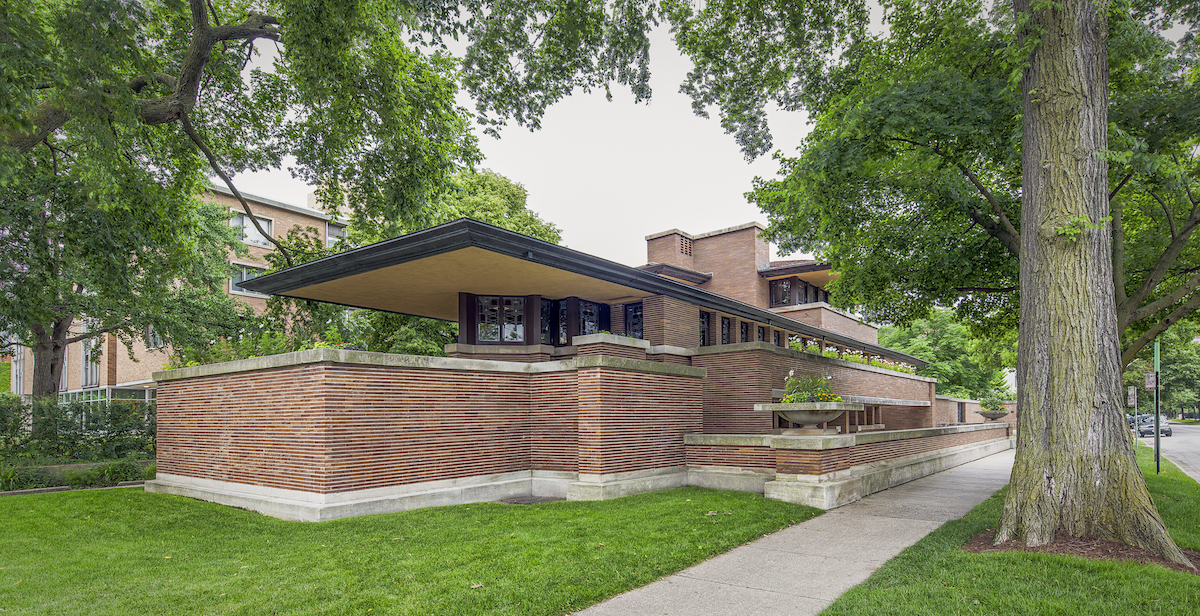 Frederick C. Robie House, Chicago. Photo: Tim Long, courtesy Frank Lloyd Wright Trust
Frederick C. Robie House, Chicago. Photo: Tim Long, courtesy Frank Lloyd Wright Trust
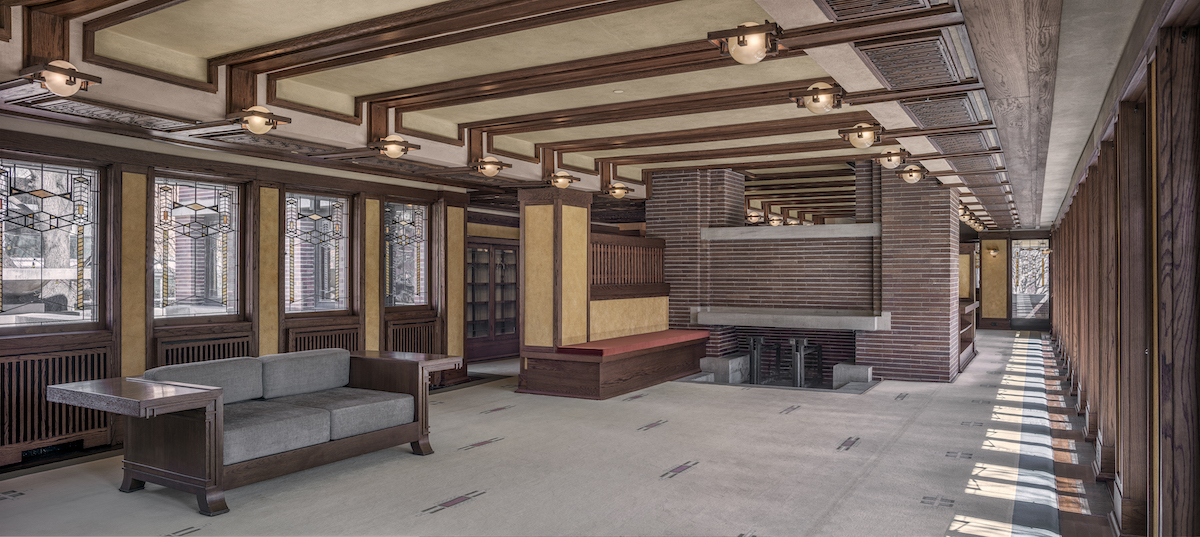 Frederick C. Robie House, Chicago. Photo: James Caulfield, courtesy Frank Lloyd Wright Trust
Frederick C. Robie House, Chicago. Photo: James Caulfield, courtesy Frank Lloyd Wright Trust
Related Stories
| Oct 12, 2010
Building 13 Naval Station, Great Lakes, Ill.
27th Annual Reconstruction Awards—Gold Award. Designed by Chicago architect Jarvis Hunt and constructed in 1903, Building 13 is one of 39 structures within the Great Lakes Historic District at Naval Station Great Lakes, Ill.
| Oct 12, 2010
Full Steam Ahead for Sustainable Power Plant
An innovative restoration turns a historic but inoperable coal-burning steam plant into a modern, energy-efficient marvel at Duke University.
| Oct 12, 2010
From ‘Plain Box’ to Community Asset
The Mid-Ohio Foodbank helps provide 55,000 meals a day to the hungry. Who would guess that it was once a nondescript mattress factory?
| Oct 11, 2010
HGA wins 25-Year Award from AIA Minnesota
HGA Architects and Engineers won a 25-Year Award from AIA Minnesota for the Willow Lake Laboratory.
| Oct 11, 2010
MBMA Releases Fire Resistance Design Guide for metal building systems
The Metal Building Manufacturers Association (MBMA) announces the release of the 2010 Fire Resistance Design Guide for Metal Building Systems. The guide provides building owners, architects, engineers, specifiers, fire marshals, building code officials, contractors, product vendors, builders and metal building manufacturers information on how to effectively meet fire resistance requirements of a project with metal building systems.
| Oct 11, 2010
Rhode Island is the first state to adopt IGCC
Rhode Island is the first state to adopt the International Green Construction Code (IGCC). The Rhode Island Green Buildings Act identifies the IGCC as an equivalent standard in compliance with requirements that all public agency major facility projects be designed and constructed as green buildings. The Rules and Regulations to implement the Act take effect in October 2010.
| Oct 8, 2010
Union Bank’S San Diego HQ awarded LEED Gold
Union Bank’s San Diego headquarters building located at 530 B Street has been awarded LEED Gold certification from the Green Building Certification Institute under the standards established by the U.S. Green Building Council. Gold status was awarded to six buildings across the United States in the most recent certification and Union Bank’s San Diego headquarters building is one of only two in California.
| Oct 6, 2010
Windows Keep Green Goals in View
The DOE's National Renewable Energy Laboratory has almost 600 window openings, and yet it's targeting LEED Platinum, net-zero energy use, and 50% improvement over ASHRAE 90.1. How the window ‘problem’ is part of the solution.
| Oct 6, 2010
From grocery store to culinary school
A former West Philadelphia supermarket is moving up the food chain, transitioning from grocery store to the Center for Culinary Enterprise, a business culinary training school.
| Sep 30, 2010
Luxury hotels lead industry in green accommodations
Results from the American Hotel & Lodging Association’s 2010 Lodging Survey showed that luxury and upper-upscale hotels are most likely to feature green amenities and earn green certifications. Results were tallied from 8,800 respondents, for a very respectable 18% response rate. Questions focused on 14 green-related categories, including allergy-free rooms, water-saving programs, energy management systems, recycling programs, green certification, and green renovation.


